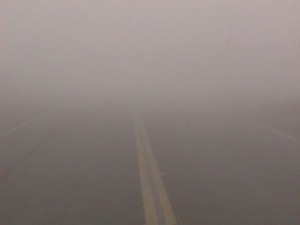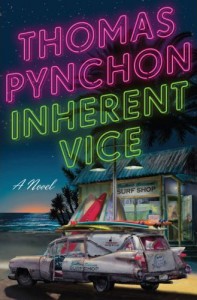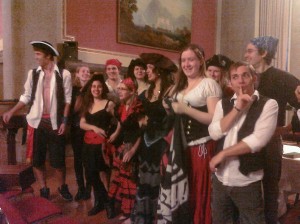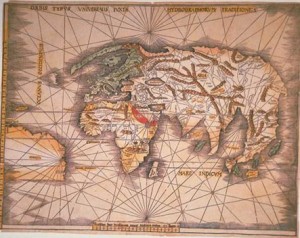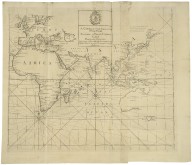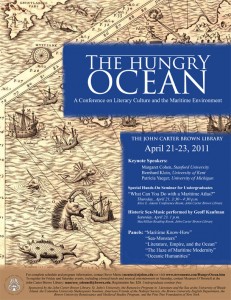 We see the world most often through a thin gaseous medium, and although air bends the color spectrum, it’s when light passes through water that we see the most spectacular affects. Rainbows, partial-reflections, magnification, prism-bending: the things water does to light comprise a catalog of aesthetic shifts. A poetics of the sea begins here, where lights bends and colors separate.
We see the world most often through a thin gaseous medium, and although air bends the color spectrum, it’s when light passes through water that we see the most spectacular affects. Rainbows, partial-reflections, magnification, prism-bending: the things water does to light comprise a catalog of aesthetic shifts. A poetics of the sea begins here, where lights bends and colors separate.
The point isn’t only to connect underwater vision with high modernist experimentation, though I’m very much looking forward to Margaret Cohen’s ongoing project connecting these two things. It’s also, in historical periods that precede underwater photography, a way of coming to grips with a medium that occludes, distorts, radically shifts our terrestrial experience. The ocean is the surface of the world, and the biosphere, to a rough degree of approximation — but for land creatures like humans, returning to an aqueous medium entails making everything visual unclear. It’s a sea-change, but not always a pleasing one: the pearls that were his eyes are hard to see underwater.
Maybe that’s what captures the Homeric imagination about “wine-dark”: the epithet glimpses the sea at its least see-through, when light fades and the waters shift from translucent to light-stealing, as if a door into Mediterranean bottomlessness has suddenly shut. It’s the shift from visible to opaque, from open to shut, that the poet captures. Or tries to capture —
The sea is a forgetting,
a song, a lip;
the sea is a lover,
a faithful response to desire…
On dark shoulders
the waves are enjoying themselves.
Luis Cernuda (trans from Spanish by Brian Cole)



